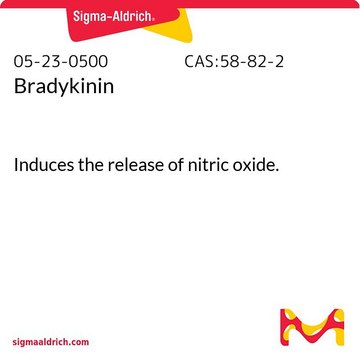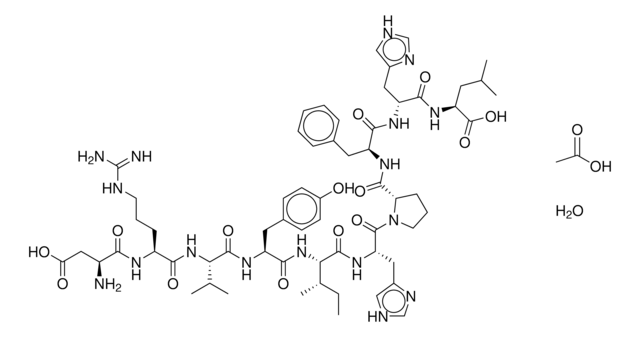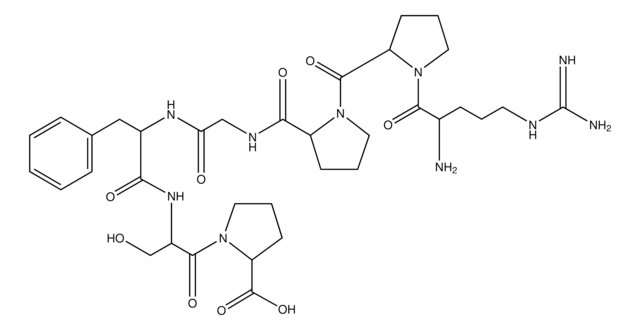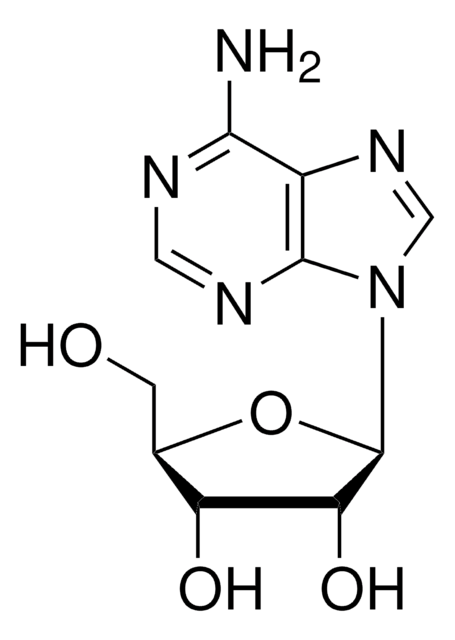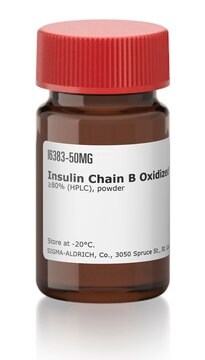Recommended Products
Quality Level
Assay
≥98% (HPLC)
form
powder
storage condition
desiccated
color
white
solubility
0.1 M acetic acid: 25 mg/mL, clear, colorless
UniProt accession no.
storage temp.
−20°C
InChI
1S/C50H73N15O11/c51-32(16-7-21-56-49(52)53)45(72)65-25-11-20-39(65)47(74)64-24-9-18-37(64)43(70)58-28-40(67)59-34(26-30-12-3-1-4-13-30)41(68)62-36(29-66)46(73)63-23-10-19-38(63)44(71)61-35(27-31-14-5-2-6-15-31)42(69)60-33(48(75)76)17-8-22-57-50(54)55/h1-6,12-15,32-39,66H,7-11,16-29,51H2,(H,58,70)(H,59,67)(H,60,69)(H,61,71)(H,62,68)(H,75,76)(H4,52,53,56)(H4,54,55,57)/t32-,33-,34-,35-,36-,37-,38-,39-/m0/s1
InChI key
QXZGBUJJYSLZLT-FDISYFBBSA-N
Gene Information
human ... KNG1 (includes EG:3827)
Looking for similar products? Visit Product Comparison Guide
Amino Acid Sequence
Application
- to stimulate the contraction of guinea pig ileum
- as a contractile agent in fibroblasts
- In the stimulation of endothelium of human subcutaneous artery
- To evoke Ca2+ signals in neuroblastoma-glioma hybrid cell line, NG108-15
Biochem/physiol Actions
Storage Class Code
11 - Combustible Solids
WGK
WGK 3
Flash Point(F)
Not applicable
Flash Point(C)
Not applicable
Personal Protective Equipment
Choose from one of the most recent versions:
Already Own This Product?
Find documentation for the products that you have recently purchased in the Document Library.
Customers Also Viewed
Our team of scientists has experience in all areas of research including Life Science, Material Science, Chemical Synthesis, Chromatography, Analytical and many others.
Contact Technical Service